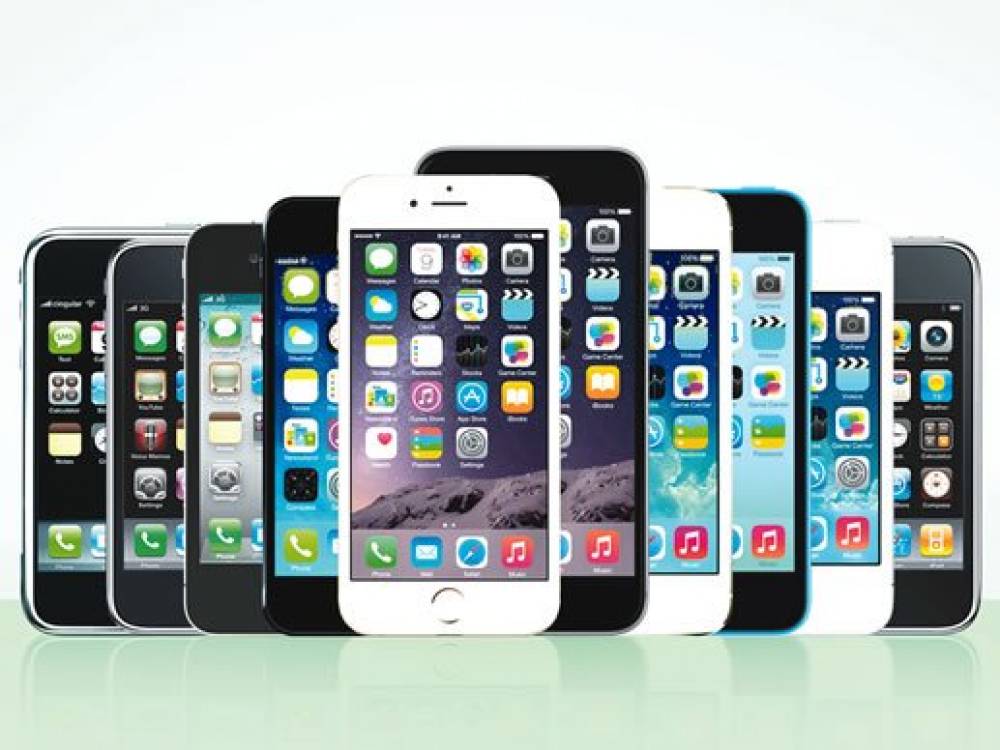
Why do Nigerians prefer used iPhones over other smartphone brands
Why do Nigerians prefer used iPhones over other smartphone brands?
Africa is one of the world's fastest growing mobile phone markets. According to GSMA Intelligence, the region had 456 million mobile subscribers at the end of 2018, and that number is expected to grow by another 167 million by 2025.
To help understand the growth, the report indicates that the Sub-Saharan Africa mobile phone market is expected to expand by 4.6 percent over the next five years, compared to 3 percent globally.
The continent's used phone market is a significant contributor to this growth. According to Counterpoint, the region's second-hand market aided the global refurbished smartphone market's volume growth by about 4% in 2020, despite the pandemic. In 2021, the growth rate is expected to be even higher.
Apple dominates the second-hand phone market
Apple has the largest secondary market of all smartphone manufacturers. Jeff Fieldhack, Research Director at Counterpoint, revealed that the secondary market's appetite for iPhone has not waned.
He added that Apple's secondary market share would exceed 44% in the second half of 2020. By contrast, its total smartphone shipment (new phone) was only 13%.
Similar to the global outlook, its African market, particularly South Africa, Nigeria, Egypt, and Kenya, saw a similar trend.
For instance, in Nigeria, the secondary market has grown due to a variety of factors. But perhaps the most significant impediment is poverty, which has a direct effect on the population's purchasing power.
As evidenced by Statista's smartphone charts, cheaper Chinese brands such as Techno (28.05 percent ) and Infinix (18.14 percent ) have a larger market share in Nigeria than luxury brands such as Samsung (10.65 percent ) and Apple (8.38 percent ).
However, when it comes to the used market, the situation is slightly different, as the Apple brand is the most popular.
Given the high cost of Apple smartphones and the obvious barrier of spending power, it begs the question of why it outperforms cheaper brands such as Techno and Infinix in the used market.
According to Seun, a UK-based smartphone vendor, people prefer Apple primarily because it retains its value when resold.
“The majority of people can substitute it for another item of their choice with only a small amount added.”
Tosin, another vendor, believes this is because refurbished Apple phones have a higher reputation than other brands' phones. “A pre-owned Mercedes has a higher reputation than a new Kia. Customers understand that purchasing used Apple will earn them a better reputation than purchasing new from other brands.”
Numerous Apple users concur with Tosin's assessment of reputation/status conferral. Ganiyat, an iPhone user, told this correspondent that she purchased an iPhone 10 in order to be able to compete with her friends. “The smallest phone my friends use is an iPhone 10, so anything else is out of the question.”
According to another user, Richard, he likes it because it is durable and has a good camera in comparison to other phones.
He is not alone, as Mrs Tobore also emphasized the reliability and durability of Apple phones, while also emphasizing the data security they provide.
Other users interviewed mention reasons such as personal preference, class, social acceptance, and resale value. Some even admitted that used Apple products were less expensive.
Used phone retailers generally confirmed reports that the Apple brand sells more quickly. According to Glen Cardoza, senior research analyst at Counterpoint Research, this is because Africa has a higher percentage of new businesses and improved domestic technology and repair capabilities.
On the other hand, Tosin believes that the brand's increased trade-in offers are increasing the available supply of used phones from Europe.
In Summary
Refurbished iPhone retailers can fill the current gap in Apple product sales and could compete with established retailers' average selling prices.
However, as long as price remains the primary factor in purchasing decisions, demand for less expensive but sophisticated alternatives will continue to grow.
While Apple is the market leader in Africa's second-hand market, it is still largely untapped. With demand continuing to grow and missing infrastructure slowly being put in place, traders in the market have an enormous revenue potential.

